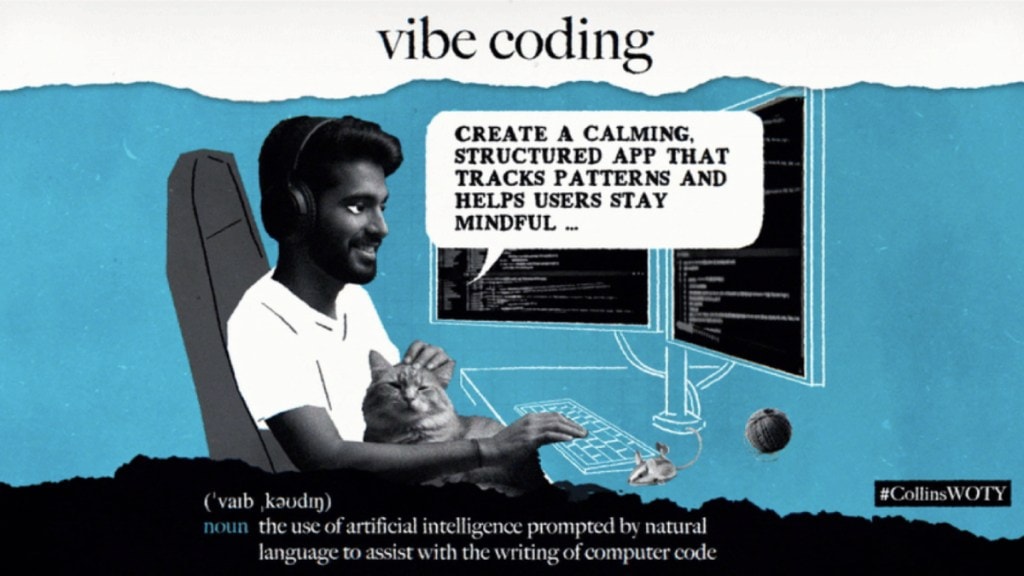Collins Dictionary has officially declared ‘vibe-coding’ as its Word of the Year for 2025, following a year where AI was one of the most talked-about topics. The official announcement confirms the word’s emergence from a niche tech slang to a mainstream term, highlighting the cultural shift in how software and design are approached these days by the computing society.
Vibe-coding is defined by Collins Dictionary as ‘the use of artificial intelligence prompted by natural language to assist with the writing of computer code.’ It is essentially the act of customising, tweaking, or designing code and digital interfaces to achieve a specific emotional, cultural, or aesthetic atmosphere. The idea is to focus on the vibe rather than simply focusing on the utilitarian functionality of the code.
Vibe coding mentions the rise of aesthetic programming
The term has gained significant traction within the Gen Z developer community and on social platforms like TikTok, where elaborate custom user interfaces (UIs) and bespoke dark modes are celebrated. For years, code was judged purely by efficiency and function. Now, however, user experience is increasingly measured by emotional resonance.
According to Collins language analysts, the term’s usage surged massively in 2025, driven in part by the rapid popularity of generative AI models. Companies now frequently discuss vibe-coding their AI, i.e., tuning language models to adopt a specific personality, tone, or mood. Coders now ensure the output feels emotionally aligned with the brand or application’s target user base.
Vibe coding outpaced other cultural tech phrases
Although vibe coding took the top prize in Collins Word of the Year 2025, it had a close competition with other words and phrases that related to the relevant trends of 2025, including climate activism, cybersecurity, and an increased focus on tech activity.
Other popular terms and phrases that were in contention included terms like aura farming, biohacking, broligarchy, clanker, coolcation, glaze, HENRY, micro-retirement, and taskmasking.







